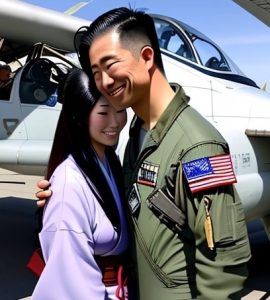The attack on Pearl Harbor stands as an extraordinary moment in history, forever altering the dynamic between Japan and the United States. But in the aftermath of this tragic event, both nations have tirelessly strived to rise above the pain, forging a path of understanding and cooperation. Embracing the significance of our shared past is a crucial step, enabling us to learn from past mistakes and honor the sacrifices made.
Following the devastating attack on Pearl Harbor, which claimed the lives of thousands of Americans, tensions between Japan and the United States reached unprecedented heights. However, in the subsequent decades, both nations recognized the imperative of healing wounds and nourishing a spirit of reconciliation. Commemorative events, memorial services, and educational initiatives all serve as reminders of the enduring need to champion peace and comprehension.
The efforts to bridge the gap between Japan and the United States have been diverse and ceaseless. Cultural exchanges have played a pivotal role, fostering mutual respect and admiration. Through the realms of art, music, and sports, both nations have showcased their distinctive traditions, kindling a sense of unity among their people. Additionally, educational programs have been developed to foster cross-cultural understanding and exchange among students, ensuring that younger generations grow up with a profound appreciation for the shared values and history of both nations.
Diplomatic endeavors have also been instrumental in solidifying the bond between Japan and the United States. The signing of the Treaty of Mutual Cooperation and Security in 1960 marked a significant milestone, cementing the alliance between the two nations. This treaty, alongside subsequent agreements and partnerships, has facilitated enhanced collaboration in areas such as defense, trade, and technology. Through diplomatic channels, Japan and the United States have successfully addressed mutual concerns and worked towards a shared vision of peace and prosperity.
In recent years, the relationship between Japan and the United States has continued to evolve and deepen. The commemoration of the 75th anniversary of the attack on Pearl Harbor in 2016 served as a poignant reminder of the progress made in healing past wounds. Both nations joined hands to pay homage to the lives lost and reaffirm their unwavering commitment to peace and friendship. This event exemplified the transformative power of remembrance in fostering understanding and emphasized the importance of ongoing efforts to bridge the gap between the two nations.
The journey from Pearl Harbor to peace is an ongoing endeavor, necessitating unwavering dedication and commitment from both Japan and the United States. By honoring history, recognizing the pain of the past, and diligently working towards a shared future, these two nations have showcased to the world the resolute power of reconciliation. As the world confronts new challenges, it becomes increasingly crucial for countries like Japan and the United States to lead by example, demonstrating that peace and understanding can triumph even in the face of adversity.

